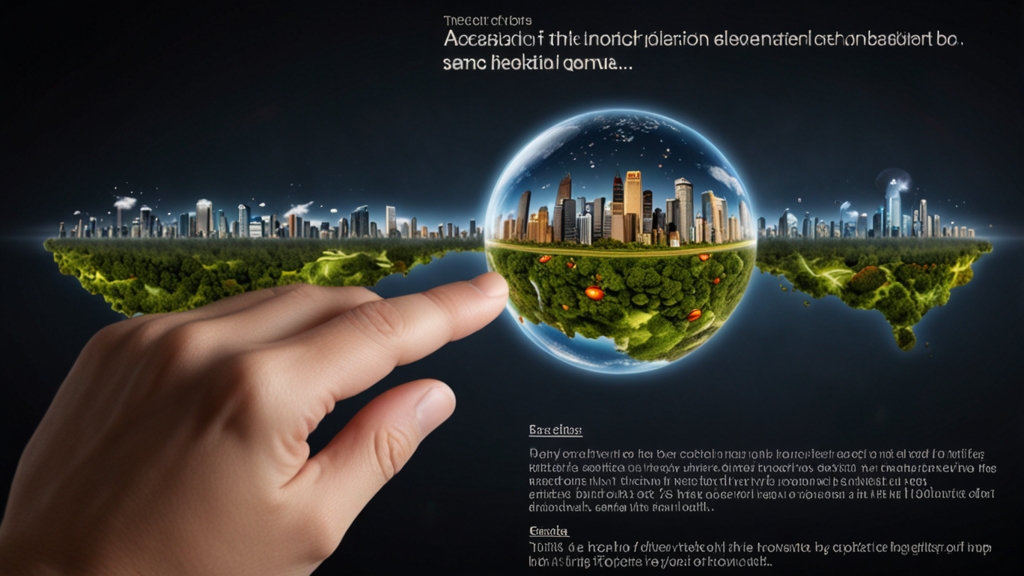Ethics in a Greedy World: Are We Losing Our Humanity?
As we march forward into an age dominated by technological advancements and economic pursuits, the question of ethics — what it means, how we define it, and most crucially, how we practice it — becomes increasingly significant. The drive for success and wealth often comes at the expense of basic human values, raising a pressing question: Are we losing our humanity in a greedy world?
The Allure of Wealth and Power
The relentless pursuit of wealth and power can cloud judgment and corrupt moral compasses. In today's society, success is frequently gauged by financial and material acquisitions. This notion is perpetuated by media, advertising, and even social media platforms, which showcase a seemingly perfect life that revolves around opulence.
"It is not the man who has too little, but the man who craves more, that is poor." — Seneca
Seneca's timeless words remind us that unbridled greed leads to an insatiable appetite for more, creating a vicious cycle. As individuals accumulate wealth and power, their priorities often shift from communal well-being to self-interest, fostering environments where ethical compromises become justifiable norms.
The Impact on Societal Ethics
When societal values prioritize wealth above all else, ethical considerations inevitably suffer. This is evident in various aspects of our world today, from corporate malpractices to political corruption. For instance, companies may cut corners, engage in exploitative labor practices, or harm the environment to maximize profits. Politicians may prioritize policies that benefit a wealthy few over the well-being of the majority.
These actions can erode public trust and create a sense of cynicism towards institutions. When people observe unethical behavior going unpunished or even rewarded, it sets a dangerous precedent that can result in widespread ethical deterioration. This moral decay isn't confined to the power corridors; it trickles down to everyday life, influencing the decisions and behavior of ordinary people.
The Human Cost
The ethical lapses driven by greed have far-reaching human costs. Relationships suffer as people prioritize personal gain over communal and familial ties. Trust diminishes, creating fractured communities where altruism and empathy are undervalued.
"The greatness of humanity is not in being human, but in being humane." — Mahatma Gandhi
Gandhi’s insight underscores the importance of empathy, compassion, and ethical behavior in preserving our humanity. To lose these qualities would mean to deprive ourselves of the very elements that define us as a species.
Restoring Ethical Integrity
While the current landscape may seem bleak, hope lies in recognizing the problem and actively seeking change. Ethical integrity can be restored through collective effort, education, and personal responsibility. Individuals and communities can cultivate environments where ethical actions are valued and celebrated.
Education plays a crucial role in instilling ethical values from a young age. Schools and universities can incorporate ethics into their curriculums, teaching students to critically evaluate scenarios and make morally sound decisions. Furthermore, organizations can commit to ethical business practices that prioritize sustainability, fairness, and social responsibility.
Conclusion
In a world where the allure of wealth and power can overshadow ethical considerations, it is imperative to remember that our humanity relies on our ability to act ethically. By recognizing the impact of greed and taking concrete steps towards nurturing ethical behavior, we can reclaim the values that define our humanity.
"Ethics and equity and the principles of justice do not change with the calendar." — D.H. Lawrence
Lawrence's words remind us that ethical principles are timeless and universal. They transcend eras, economies, and societal changes, remaining the bedrock of our collective humanity. It is up to us to uphold these values and ensure that, despite the challenges posed by a greedy world, our humanity remains intact.






